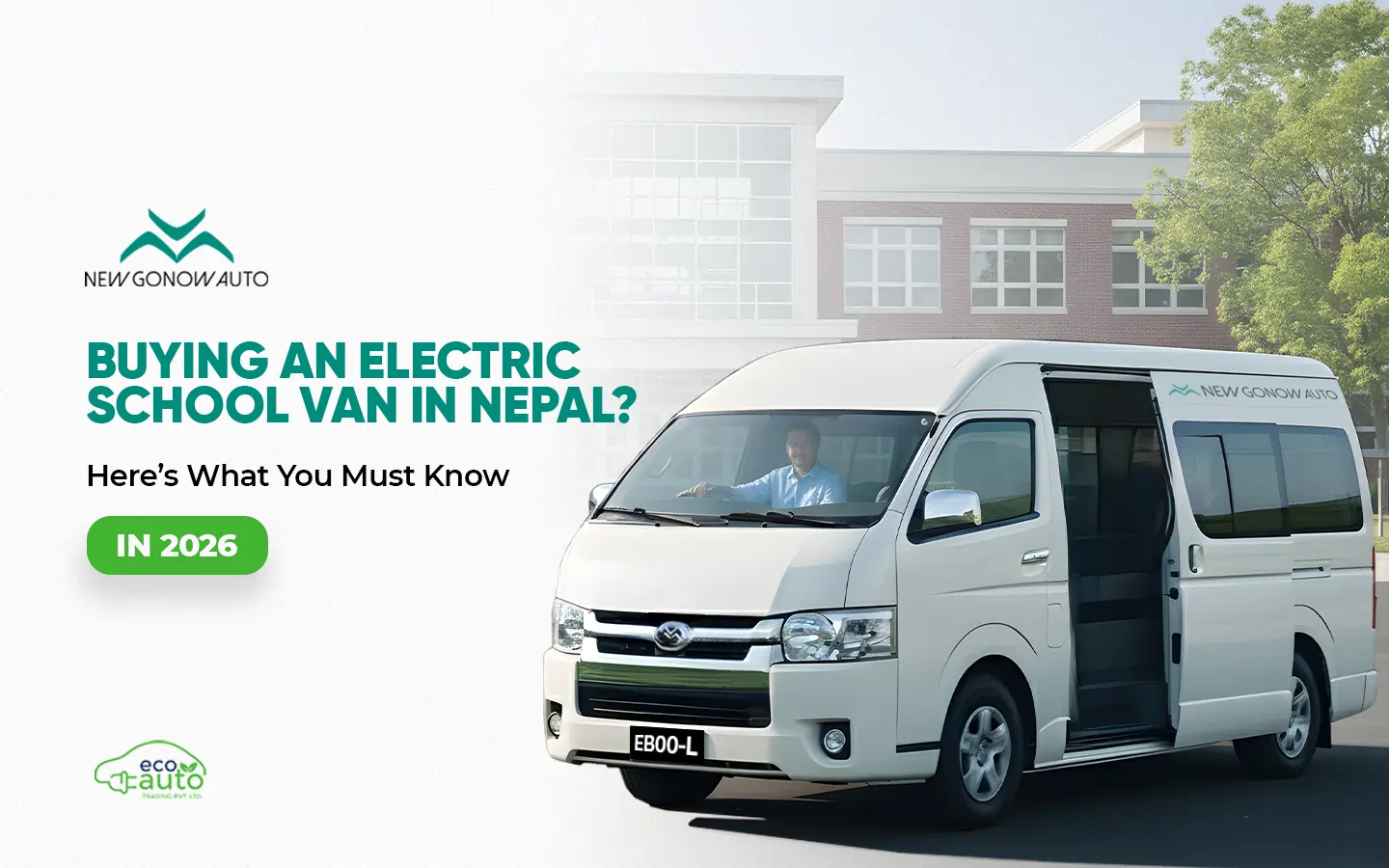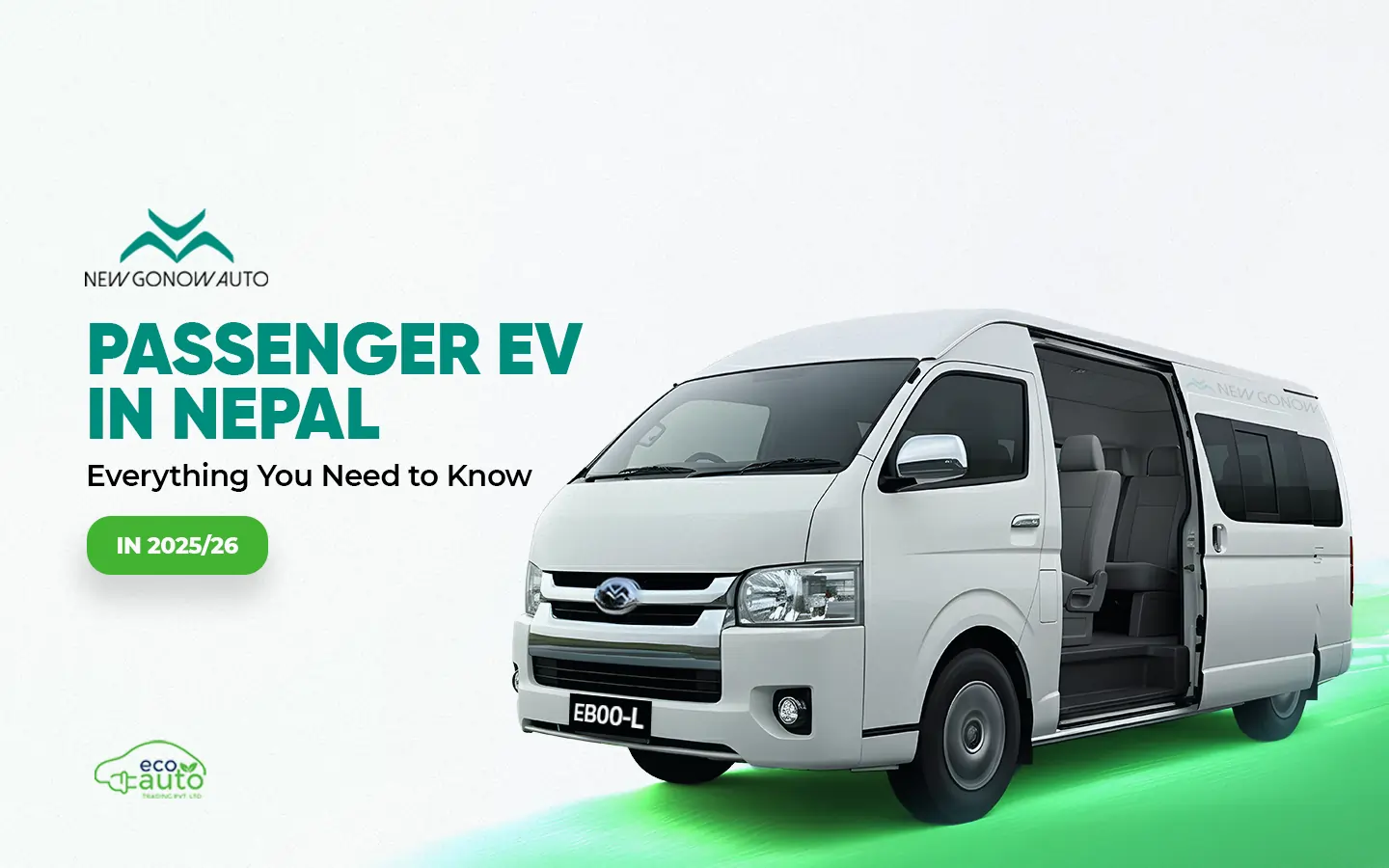
EV in Nepal: 7 Hidden Costs No One Tells You
Why Electric Vans Are Gaining Popularity in Nepal
Electric vehicles (EVs) are becoming a popular choice in Nepal, especially electric vans used for commercial purposes. With rising fuel prices and growing environmental concerns, many businesses and individuals are switching to electric vans in Nepal to save money and reduce pollution.
While the benefits of EV in Nepal are clear such as lower running costs and eco-friendliness there are some hidden costs that buyers often overlook. These hidden costs can affect your budget and overall experience.
Top 7 Hidden Costs of Electric Vans in Nepal You Need to Know
In this blog, we will explore 7 hidden costs of ev in Nepal that no one usually tells you. This guide covers everything you need to know before making your purchase.
1. Higher Upfront Cost Compared to Conventional Vans
One of the first things people notice when buying an electric van is the electric van price in Nepal. EVs generally cost more upfront than diesel or petrol vans.
| Vehicle Type | Average Price in Nepal (NPR) |
| Diesel Van | NPR 3,000,000 – 4,000,000 |
| Electric Van (EV) | NPR 4,500,000 – 6,500,000 |
Why is the price higher?
The technology behind EV vehicles in Nepal, especially the battery, contributes to this high price. Import taxes, limited local manufacturing, and the new technology all add up.
Tip: Look for government tax benefits or subsidies on electric vans, which can help reduce the initial cost.
2. Battery Replacement Cost – A Major Hidden Expense
The battery pack is the heart of any EV. While modern batteries last several years, eventually, they will need replacement.
- EV battery replacement cost in Nepal can range from NPR 1,000,000 to NPR 1,500,000 depending on the van model.
- Battery degradation affects driving range and performance over time.
- Replacing the battery is expensive and not usually covered under standard warranties.
Important: Regular maintenance and good charging habits can extend battery life, but eventual replacement is unavoidable.
3. Limited EV Charging Stations in Nepal
Unlike countries with widespread EV infrastructure, Nepal is still developing its network of EV charging stations.
- Few public charging stations are available outside the Kathmandu Valley.
- Many commercial electric van owners need to install private chargers, which adds to costs.
- Charging at home or offices often requires electrical upgrades, increasing initial expenses.
Many users frequently search for “Where can I find EV charging stations near me in Nepal?” This query reflects the growing interest in accessible charging points, although coverage remains limited but is expanding steadily.
4. EV Maintenance Cost in Nepal: Lower but Not Zero
Electric vans require less frequent maintenance compared to diesel vans because they have fewer moving parts.
- No oil changes or fuel filters are needed.
- Brake wear is reduced due to regenerative braking.
- However, EV maintenance cost in Nepal includes servicing electrical systems, battery health checks, and software updates.
- Some parts can be expensive to replace due to limited local suppliers.
5. Insurance Premiums for Electric Vans
EVs tend to have higher insurance premiums in Nepal due to their higher replacement cost and new technology.
- Insurance companies charge more for commercial electric vans.
- Specialized repair shops are limited, increasing repair costs after accidents.
- Always compare insurance quotes before buying.
6. Off-Road and Tough Terrain Considerations for EV Vans in Nepal
Nepal’s diverse geography means many commercial vans operate in hilly or rough terrains. While some EVs are made for off-road use, their range and battery performance can suffer.
- EVs for off-road use might require stronger batteries or special tires.
- Energy consumption is higher on steep roads, leading to more frequent charges.
- This can increase operating costs and reduce overall efficiency.
7. Government Tax on EVs in Nepal: Know the Details
The Nepalese government supports EV adoption with incentives, but taxes and regulations are still evolving.
- Certain electric vans qualify for reduced import taxes.
- Other charges may apply, such as road taxes or registration fees.
- Stay updated with local government policies to avoid unexpected costs.
Understanding the True Value of Electric Vans in Nepal
Electric vans offer more than just transportation; they bring long-term value that goes beyond the initial price. Here’s why many buyers in Nepal find EV vans a worthwhile choice:
- Lower operating costs: Electricity is generally cheaper than petrol or diesel, saving you money every month on fuel.
- Less maintenance hassle: With fewer moving parts and no oil changes, EV vans often cost less to maintain.
- Supporting a cleaner Nepal: By choosing electric, you help reduce pollution and noise, contributing to healthier communities.
- Growing government support: Tax breaks, subsidies, and incentives make owning an EV more affordable and attractive.
- Better for business image: Eco-friendly vehicles can enhance your brand reputation among customers who value sustainability.
While some costs may be hidden at first glance, the overall benefits and savings usually outweigh these. Planning carefully and understanding your needs will help you get the best experience from your electric van.
Growing EV Charging Infrastructure in Nepal: What You Need to Know
While EV charging stations are currently limited outside Kathmandu Valley, the network is expanding steadily.
- New public chargers are being added in key cities and along major routes.
- Many owners install private chargers at home or workplaces, which provides flexibility.
- Electrical upgrades for charging points are manageable, and professional help is available.
This growing infrastructure makes using electric vans more convenient each year, making now a good time to consider switching.
Final Thoughts: Should You Buy Electric Vans in Nepal?
If you plan carefully and understand the hidden costs, electric vans are an excellent investment for both personal and commercial use. They help save money on fuel and maintenance while promoting Nepal’s green future.
You can also explore electric vans from local showrooms like Eco Auto Nepal that specialize in commercial EVs.Our experts will guide you through the entire process from choosing the right van to installation of EV charging stations.
FAQs
Q1: Are electric vans cheaper to run than diesel vans in Nepal?
Yes, electric vans have lower running costs due to cheaper electricity and less maintenance, but upfront cost is higher.
Q2: How long does an EV battery last in Nepal’s climate?
Typically 5 to 8 years, depending on use and maintenance.
Q3: Are there enough EV charging stations in Nepal?
Currently, charging stations are limited mostly to urban areas like Kathmandu but are expanding.
Q4: Can I use electric vans for off-road purposes in Nepal?
Some models support off-road use, but range may reduce and costs may increase.
Q5: Does the government offer tax benefits for EV buyers?
Yes, but policies change. Always check the latest government updates.




